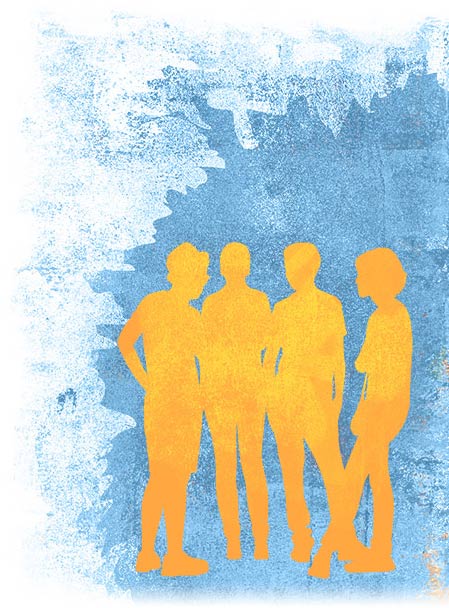Perspectives & Understanding
By Samantha Cary ’13 and Kevin Coopersmith ’12, MBA ‘15
Christina Butterfield ‘09 contributed to this story

By Samantha Cary ’13 and Kevin Coopersmith ’12, MBA ‘15
Christina Butterfield ‘09 contributed to this story

“Whether our opinions differ or we share the same sentiments, at Stockton, we encourage the conversations,” President Kesselman said in a recent address to the Stockton community. Stockton Now set out to encourage conversations as well, taking into consideration the current political climate and on-campus concerns. We met with seven student leaders to discuss what their concerns were as college students, and how they were making a difference and learning from those issues as leaders.
Q: What is your biggest concern as a college student?
LR: With everything that’s been going on, you could be scared that something that happened in Charlottesville could happen here, too.
JF: We do have fears of [riots like Charlottesville] possibly happening. Most people are more concerned with being able to afford everything; everyone’s broke around here with college loans and all that.
MT: Getting papers handed in on time. Doing well academically and still fulfilling obligations to organizations like the SVO [Student Veterans Organization] and the work that I do on campus.
TL: To find a resolution for students. I want students to be satisfied with the talks about issues on campus.
JV: My biggest concern is using [my college experience] to create a career so I can sustain myself. I’m not sure [if] what I’m doing right now is helping my future, especially since I don’t know what I want to do with my life.
MS: Graduating, having money to buy food and gas, making sure I get every opportunity while here, figuring out what to do after college, and after all of that is done trying to help fix the world and make it a better place.
JD: Finding an adequate job after graduation. A lot of my peers have been dealing with the stress of post-graduation blues. Now more than ever I’ve been utilizing the Career Center as a resource to polish my résumé for future employers.
Q: What are the current issues we are facing as a society?
JF: We are very divided. There’s very little room for meeting in the middle at all.
LR: We have a lack of understanding with each other. Being able to sit down and have a healthy debate about, “these are my views and these are your views.” You don’t always have to come to a compromise, it can just be about facilitating conversation about controversial issues; sitting down and being able to debate rather than assuming the worst.
MT: People usually tend to take issues and bring them to a level that is not needed. Nothing is logical, just more passion and fire. Instead of taking a step back and figuring out what’s the best route to take and what’s the best solution, everyone just goes up in arms and wants to have a riot.
TL: As a society, I think that we are coming to a push-comes-to-shove moment. The issues facing society on a larger scale are just right versus left. Political parity is a big issue right now.
JV: Our government – local, federal – the divisiveness is huge. I think we need a lot more dialogue in society.
MS: Our current government, the fact that people seem to act without understanding, hate and judgement.
JD: As a student of color, this year in particular has been extremely tough for me. With the political climate in this nation at odds, I realized that racial tension is a conversation that I’m having very often with my peers. As a society, these concerns are real life issues that need to be addressed but I know that this process won’t happen overnight.
Q: As a student leader, what is your role in solving these issues?
LR: On student senate, this is what we deal with all the time. We really try to represent the students as best as we can and weigh both sides. Overall, the majority of us believe that student safety comes first over everything. But we also want to be able to send a message to the public about what Stockton believes is the right thing to do. We want to be a model to the rest of the world that we can talk about these issues without automatically going to the extreme.
JF: At our meetings, we want to open things up for others to talk about these issues. Obviously if anyone has any hateful feelings, do not come to our meetings, please. But that hasn’t happened yet. Everyone here is pretty reasonable. I talk to a lot of people on the College Democrats – they’re cool people, I don’t agree with them on most things, but we meet in the middle sometimes.
MT: I try to hear what everyone has to say, but I don’t try to influence them. If I’m speaking to someone about an issue, I try to have them see not necessarily my point of view, but someone else’s point of view. It’s like, "Hey, let’s get you out of the box that you’re in and accept everyone’s view and take it into account." Even if it’s something that you don’t agree with, there’s definitely little bits and pieces from each person that once you put it together, you get something great.
TL: A big theme we have in Student Senate is shared governance, we are the voice of the students and while that’s a huge responsibility we are nothing more - we are not the executive body on campus. Our role is to make sure we maximize the voice of the students and translate that to the administration of the University.
JV: Organizing. Just organizing and getting people in touch with local leaders; we have a connection with the Atlantic County Democrats and we try to plan events with them. I’m hoping to have them on campus soon, so we can set up a Q&A with the candidates.
MS: As Pride Alliance president I try to spread education and love, even if this means between our own members. We try to make sure people listen and understand before judging. We teach while giving a sense of community and while having fun.
JD: My role as a student leader is to bridge the gap between the professional staff members and students. Whatever concerns are bothering the students, professional staff members should immediately hear about them. Myself and other student leaders on campus are the ones facilitating these hard conversations. With these conversations we hope a positive solution will come about.
Q: Describe the types of conversations you are having about these issues – with your friends, with your peers, in the classroom.
JF: Whether it’s sports or anything else, everything is divided now and these types of issues always come up [in conversation]. You just try to keep it civil, mostly. There’s a few people that might be really divisive, but a lot of the students are really down to earth.
LR: We have a lot to deal with lately with Student Senate and making sure all students’ voices are being heard. We all have different views on how we should handle things, but I think it comes down to understanding how we can do the most we can for everybody else. People are just trying to understand what’s going on.
MT: I have one professor who tends to take an issue and make it more of a direct conversation to military members instead of it being a lecture. These kinds of conversations are about finding an understanding with one another. Everybody’s life counts; it’s what they do with their life that defines who they are. No one is not significant because of their skin tone.
TL: My conversations outside of those forums are more about encouraging students to voice their opinions. There’s a lot of barriers to students voicing their opinions, and so even when we are trying to be as open as possible, we’re not being heard. So I try to get them to open up. Faculty doesn't avoid these issues. I think the professors do a great job of not suppressing [students’] opinions but still giving everyone what they came for, which is an education in that particular course.
JV: In PoliSci classes, debate is very prevalent, especially with certain professors. I really like how Professor Abernathy is bipartisan and she likes to hear both sides, so I’ll talk about how I view how our government should be, and a conservative student will say, "this is what I think," and we can have healthy conversations about it. It’s good to get out of the liberal bubble and hear why people think the way they think.
MS: We often talk about how to make Pride Alliance better. How to open it up for more allies and have the whole Stockton community understand that the queers are just people. We talk about making Stockton an even more accepting and loving environment.
JD: Issues of policy, whether it is gun control or the legalization of marijuana in New Jersey, have been the topic of numerous conversations inside the classroom. For professors, they are bias free because they want us to formulate our own ideas while using critical thinking skills. Positive solutions aren’t usually hard to come upon because everyone is willing to advance this society.
Q: How do you envision these experiences will prepare you for the real world?
LR: I feel 100 percent that all these experiences that I’ve had lately and just being involved at Stockton has shaped me into the person that I am today. Just being more aware of what’s going on around me has changed who I am, and it’s changed my career course as I’ve picked up Political Science as a second major. I’m looking to do more and try and change more than what’s right in front of me.
JF: I used to be kind of shy and a really mediocre student. Now I’m really involved and I’ve really gotten into my studies. I love Stockton, it’s great. And just being more aware of the world around you and being aware of your peers - it’s making me more prepared for all the different people I’m going to meet and all the different types of things that I’ll have to do.
MT: It’s more of a challenge to come back from the real world [to school]. In the military, I did operations in the continental U.S., then worked in law enforcement for a brief stint, and seeing real life situations, and being the one that people look at to solve the issue, was more preparation than college has been. It was definitely an eye-opening experience being away and coming back. Some of these kids on campus, when the real world hits them, it’s going to be hard.
TL: I interact with a fairly diverse group of students, and even if most of the voices are on one side of the spectrum, I am getting a diversity of thought-processes which will be beneficial in the real world.
JV: Leadership, initiative and taking action are perks that will help me forever. Being able to talk to people and create things that turn out well, I think, are really good traits to have and most businesses are looking for that. I don’t really know what I want to do with my life. I’m not sure if I want to get into politics or finance, but I think that wherever I go, the traits that I’ve shown in college will help.
MS: Coming to Stockton is a blessing and a curse. Our campus is pretty one sided. For the most part we are accepted here. However, this is a great stepping stone for us. We, as the queers, can see the hate that we do get, often in small doses and prep ourselves to be able to handle it if it becomes worse or happens when we do not have the support of the whole alliance.
JD: Having an open dialogue about these issues on campus has better prepared me for the workforce. My communication skills have improved significantly, which in turn positively changed my interpersonal skills. Since students on this campus like to challenge each other’s thoughts in a constructive way, I’ve been able to think differently about my personal perspectives.
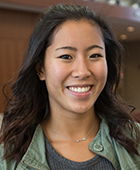
Hospitality & Tourism Management,
Political Science
Senior
Chair, Student Affairs Committee-Student Senate
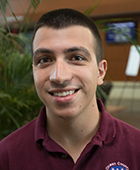
Business Studies
Junior
Vice President, Stockton University College Republicans
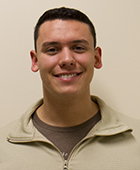
Undeclared
Chemistry minor
Junior
Student Veterans Organization
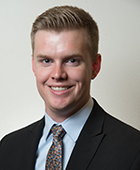
Business Studies
Senior
Student Representative, Stockton Affiliated Services, Inc. (SASI) Board of Directors
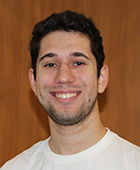
Economics
Junior
President, Stockton University College Democrats
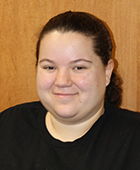
Psychology
Junior
President, Pride Alliance
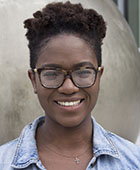
Public Health,
Chemistry minor
Senior
President, Stockton NAACP
